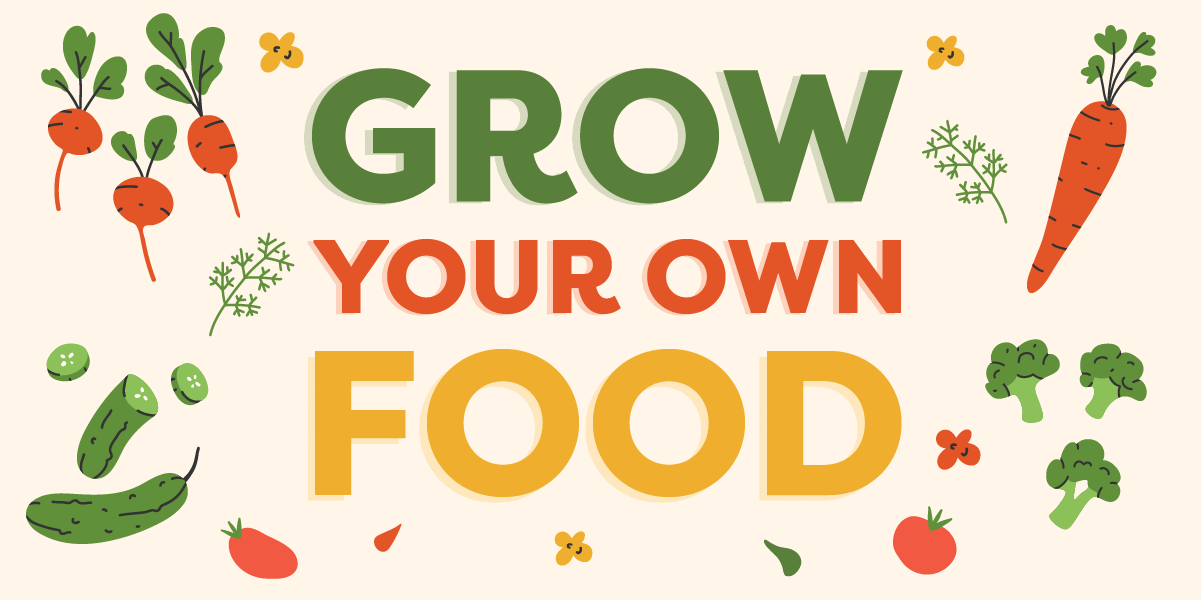Today, the zombie apocalypse has arrived. Everything has changed.
No more gleaming grocery stores, no more frozen food aisles. You’re on your own. All those AMC shows you never took seriously were a prophecy.
Beyond preparing for the zombie apocalypse, there are several compelling reasons to grow your own food. It’s more than a thing for doomsday preppers.
Growing your own food gives you a sense of accomplishment. It saves you a wad of cash. It makes you the hero when you distribute free surplus food to friends, family, coworkers, and neighbors.
So drop the remote, head outside, and start digging. Ignore the zombies.
Why Grow Your Own Food?
1. Your Food Tastes Better
You have the luxury of harvesting at peak ripeness. Unlike commercial produce, which is often picked long before it’s ripe to survive long transport times, homegrown fruits and vegetables are fresher and more flavorful.
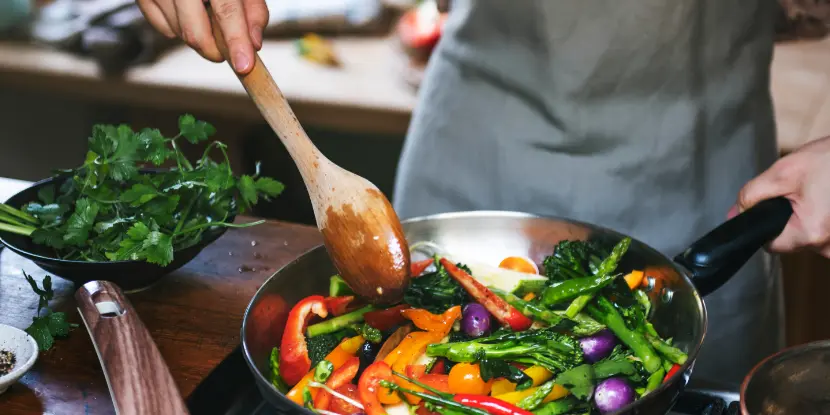
A cook preparing delicious stir-fried vegetables from the garden.
2. There Are No Chemical Residues
You’re in control of what goes into your soil and onto your plants. You can grow to produce naturally without synthetic pesticides and herbicides. Eating homegrown organic fruits and vegetables promotes better health and reduces the risk of chronic ailments like heart disease, diabetes, and cancer.
3. You Have More Variety
Growing your own food opens up a world of culinary possibilities. Heirloom tomatoes, exotic peppers, and unusual squashes are easy enough to cultivate and are just a few produce varieties rarely found in supermarkets. Each will contribute distinct and delightful flavors to your meals.
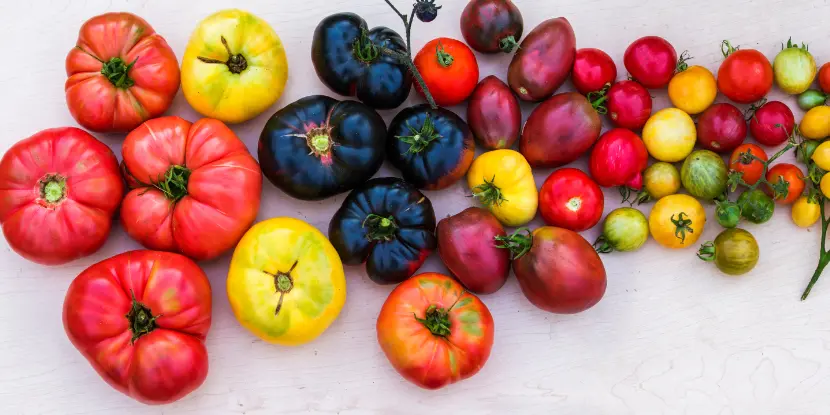
Have you ever seen these heirloom tomatoes? Probably not at the local supermarket.
5. Your Food Has a Better Nutrient Profile
Fruits and vegetables picked at their peak are more nutritious. The nutrients in fruits and veggies begin to degrade immediately after harvest, so eating produce straight from the garden ensures the full nutritional value.
6. It’s Sustainable & Eco-Friendly
Commercial agriculture is responsible for roughly 11% of global CO2 emissions. It’s also a significant cause of deforestation and topsoil depletion.
Growing your own food reduces your reliance on commercial agriculture and your carbon footprint. You’re contributing to a healthier planet.
7. You Get Exercise & Vitamin D
Gardening is a physical activity that engages your entire body. It’s a great way to stay active and get much-needed vitamin D from the sun (which improves sleep). Plus, all that digging, planting, and weeding burns calories and builds muscle.

All those muscles came from gardening.
8. You Save Beaucoup Bucks
Food prices in the USA are skyrocketing. California is one of the hardest-hit states. Growing your own food is a cost-effective alternative to pricey organic produce at the grocery store. With a small investment in tools and supplies and a bit of effort (translation: exercise), you can save lots of cash in the long run.
9. You Don’t Need a Large Yard to Garden
Thanks to advancements in urban gardening techniques, you can grow an impressive amount of produce in small spaces like balconies, patios, and rooftops. Even apartment residents can practice container and vertical gardening.
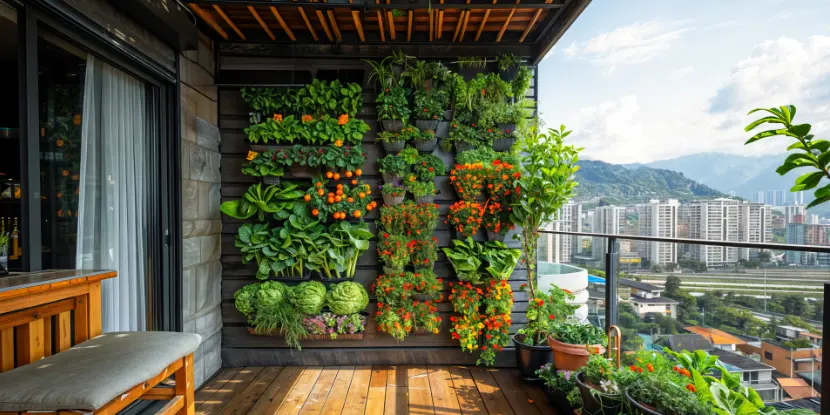
Even apartment residents can garden vertically or in containers.
10. It’s a Great Way to Connect with Nature
Studies show that spending time in nature reduces stress and anxiety, improves mood and focus, and increases happiness. Gardening is a peaceful, almost meditative activity that allows you to connect with nature while getting your hands dirty in the most satisfying way.
11. You Have Food to Share
Most home gardeners have a bumper crop of produce at some point. Instead of letting it go to waste, you can share it with friends, family, coworkers, and neighbors to spread the joy and build community connections.

You too can be the hero of the neighborhood when you hand out surplus food from your garden.
12. It’s a Fun Family Activity
Gardening promotes teamwork, communication, and responsibility while providing an opportunity for quality time together. Children can learn about nature, healthy eating, and sustainability through gardening. Parents can bond with their kids and teach valuable life skills.
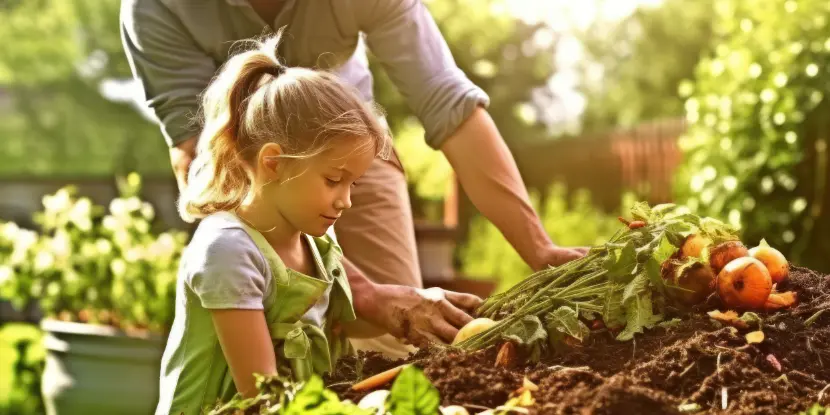
Growing your own food can be a way for families to bond and for children to learn about nature.
13. It Encourages Seasonal Eating
When you grow your own food, you become more aware of what’s in season, and you learn to eat according to the changing seasons. This promotes variety and encourages a more diverse and nutrient-rich diet.
14. It Builds Self-Sufficiency
In uncertain times, having an immediate source of fresh produce offers peace of mind, stability, and security. Growing your own food makes you less dependent on circumstances beyond your control.
15. You Can Customize Your Growing Methods
There are many ways to garden: organically, hydroponically, and vertically, and more. You can a build spiral herb garden and try your hand at companion planting. Growing your own food lets you tinker, experiment, and customize your gardening methods to suit your preferences and curiosity.
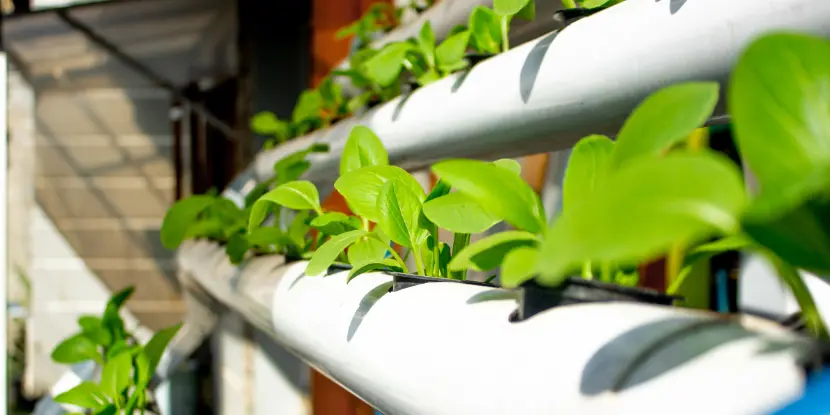
A small, vertical hydroponic system for growing leafy vegetables.
16. It’s a Creative Outlet
Gardening is a form of artistic expression that lets you create striking landscapes while nurturing life. You can try different plant combinations, garden layouts, and designs to express your inner Rembrandt.
17. You Can Preserve Your Harvest for Later
Canning, freezing, drying, or pickling, the surplus produce you grow extends the life of your harvest. You can enjoy the flavors of your garden all year and save who-knows-how-much when you give everyone pickles for Christmas.
18. You Support Local Biodiversity
Commercial agriculture promotes monoculture, which is the practice of growing a single crop in a large area. This practice leads to a loss of biodiversity, making food systems more vulnerable to disease and pests. By growing a diverse range of plants, you contribute to local biodiversity and help protect the health of the ecosystem.

Has the zombie apocalypse arrived? Try companion planting.
Tips for Growing Your Own Food
- Start small: Cultivate a few easy-to-grow plants in containers to build confidence and skills before expanding your garden.
- Take advantage of free resources: Local libraries, community gardens, online forums, and the Anawalt Garden Center offer valuable information and resources for growing your own food.
- Rotate crops: To reduce the risk of disease and pests, rotate your crops each season so that plants from the same family aren’t grown in the same spot year after year.
- Save seeds: Collect and save seeds from your garden to use for future plantings, saving money and maintaining genetic diversity in your garden.
- Use natural pest control methods: Avoid harmful chemical pesticides. Employ natural alternatives like companion planting, physical barriers, and beneficial insects.
- Water wisely: Install drip irrigation or water in the morning to minimize evaporation and reduce water use. Mulching can also help to retain moisture in the soil.
- Be patient and don’t give up: Gardening takes time, effort, and patience. Don’t get discouraged if things don’t go as planned. Every failure is an opportunity to learn and improve your gardening skills.

